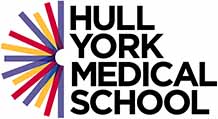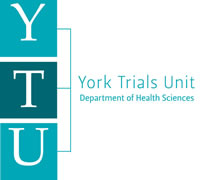Biomarker Driven Antifungal Stewardship (BioDriveAFS) in Acute Leukaemia: a Multi-Centre Randomised Controlled Trial to Assess Clinical and Cost Effectiveness
Fungal infections and acute leukaemia
Acute Myeloid leukaemia (AML), Myelodysplasia (MDS) and Acute Lymphoblastic Leukaemia (ALL) are blood cancers treated by intensive chemotherapy. Patients with these conditions who receive intensive chemotherapy are at risk of invasive (serious) fungal infections. Prolonged fever is common during chemotherapy and can be due to fungal infection. These infections are difficult to diagnose and treat and can be potentially life threatening. The most common invasive fungal infection is called invasive aspergillosis. Another common invasive fungal infection is candidiasis (caused by a fungus called candida). Aspergillus is a fungus that is found naturally all around us and does not normally make us ill. However, in people with weakened immune systems aspergillus can cause lung and other infections. Candida is a very common fungus that can cause non-serious infections in people with healthy levels of immunity, but in people with lowered immune systems more serious infections can occur.
The risk of invasive fungal infection depends on the underlying blood cancer and the type of chemotherapy being used. Chemotherapy lowers the numbers of white cells in your blood that fight infection, the lower the count and longer it remains low the higher the chance of infection. About 1 in 10 to 1 in 20 patients undergoing intensive chemotherapy will get a serious fungal infection.
Different ways have been used to prevent fungal infection in AML / MDS / ALL. Drugs called antifungals are often given as a preventive (prophylaxis). This is the usual way to prevent fungal infection in AML / MDS / ALL. This approach means that all patients take a drug to prevent a small total number of fungal infections.
Sometimes patients who develop a persistent fever during chemotherapy are given antifungal drugs for suspected fungal infections, but we know that most of the time a fungal infection is not present. The drugs used to treat fungal infections can have side effects and may interact with other drugs so we need better ways of deciding which patients do have a fungal infection so we can target treatment at these patients only. Overuse of antifungal drugs may also have serious consequences for the health service and wider society in terms of increasing antifungal resistance and costs. Discussions with patients with experience of AML / MDS / ALL informed us that the number of drugs they take can be a burden.
What is ‘antifungal resistance’ and ‘antifungal stewardship’?
Antifungal resistance means the antifungal drugs are no longer effective. It happens when certain fungi develop resistance to the antifungal drugs used to prevent or treat the infections fungi can cause. Resistant fungi are spreading worldwide and are a serious concern, with an increased risk of mortality. Antifungal Stewardship is about responsible use of antifungal drugs in a way that focuses on treating patients with the right drug whilst preserving the future effectiveness of the drug and minimises harm to the patient and healthcare costs. Currently the majority of antifungal drugs prescribed in hospitals are for patients who have blood cancers such as AML / MDS / ALL.
Why is this study needed?
Antifungal resistance is a growing concern worldwide, it is vital to find the best way to reduce antifungal use without increasing fungal infections. Blood tests can be used to detect fungal infections early, before they cause symptoms or harm to the patient. The two blood tests we are looking at are called beta-D-glucan and galactomannan, both of which are made by the fungi. If one or both blood tests become positive, it may be a sign that a fungal infection is developing and further tests and treatment are required.
We want to find out if monitoring the risk of fungal infections by regular blood tests is safe and reduces antifungal use but does not reduce patient quality of life or increase fungal infections.
What are the aims of the study?
The study aims to find out whether a biomarker-based antifungal stewardship (AFS) strategy is superior to a prophylactic antifungal strategy, including existing standard of care, in reducing antifungal therapy use in patients with acute leukaemia (AML/ALL/HRMDS) undergoing intensive chemotherapy, without adverse impact on health-related quality of life (HRQoL).
Other objectives are:
- To conduct a 9-month internal pilot to assess trial feasibility and to optimise processes for trial continuation
- To conduct a mixed methods process evaluation alongside the RCT, focusing on assessment of fidelity and implementation via qualitative methods and clinical data collection. Findings will inform ongoing feedback to local research teams and potential amendments to trial processes and training as appropriate; and will subsequently inform dissemination and implementation plans within the NHS as appropriate.
- To investigate the cost-effectiveness of a biomarker driven AFS strategy compared to prophylactic antifungals within the existing local standard of care
- To develop and strengthen a sustainable training, engagement and Patient and Public Involvement legacy along with a network of engaged stakeholders
What type of study is this?
The BioDriveAFS trial is a multicentre randomised controlled trial with parallel groups, of a biomarker-based antifungal stewardship strategy versus a prophylactic antifungal strategy, including existing standard of care, in reducing AF therapy use in patients with acute leukaemia undergoing intensive chemotherapy. Patients will be followed up for 12 months. The cost-effectiveness of these two strategies will also be compared. An internal pilot phase in a small number of centres will run during the first 9 months of the main trial, which will assess the assumptions about recruitment and provide guidance on optimising the trial processes. A mixed methods process evaluation will be integrated in parallel to the internal pilot and full trial, which will focus on fidelity to the clinical pathway and barriers and facilitators to implementation.
Who is being invited to take part?
Adult patients (16 years or older) identified in participating NHS hospitals who have a new diagnosis or relapse of acute myeloid leukaemia (AML), acute lymphoblastic leukaemia (ALL) or high-risk myelodysplasic syndrome (HRMDS), who need intensive chemotherapy and who meet all eligibility criteria.
Where is the study taking place?
NHS hospitals in the United Kingdom.
Privacy Notice: How we use your research data
Funding
| Funders(s) | NIHR Health Technology Assessment (NIHR132674) |
| Sponsor | Hull University Teaching Hospitals NHS Trust |
| Start Date | September 2021 |
| End Date | February 2026 |
Members
YTU Team:
- Samantha Brady – Trial Manager
- Lydia Flett – Trial Coordinator
- Joanne Bentham – Trial Coordinator
- Ellie Fitzmaurice - Trial Support Officer
- Puvan Tharmanathan – Senior Research Fellow
- Caroline Fairhurst – Senior Research Fellow (Statistician)
- Rebecca Smith - Statistician
External Members:
- Dr Gavin Barlow (Co-Chief Investigator – Hull York Medical School)
- Dr David Allsup (Co-Chief Investigator – University of Hull)
- Professor William Hope (University of Liverpool)
- Dr Sahra Ali (King’s College Hospital NHS Foundation Trust)
- Dr Patrick Lillie (Hull University Teaching Hospitals NHS Trust)
- Dr Andrea Hilton (University of Hull)




![]()
